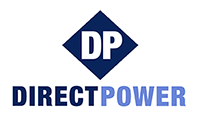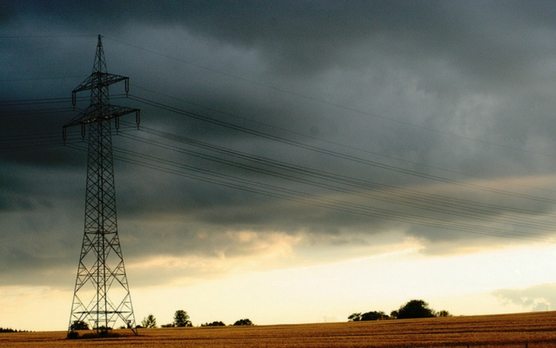EII exemption from CFD, RO, and FIT…
Contracts for Difference (CfD), Renewable Obligation (RO), and Small-Scale Feed in tariff (FiT) are schemes enabling the transition to a renewable energy mix. As you can appreciate, it costs a lot of money to fund our green future, a financial burden paid for by consumers via significant increases in electricity bills over recent years. The fear is that these schemes will render the most energy intensive industries (EII) uncompetitive on an international scale. To combat this scenario, qualifying businesses can apply for up to 85% exemption from the full impact of CFD, RO and FiT Charges.
There are winners and losers to the EII exemption scheme. Obviously the big winners are those customers who meet the qualification criteria for EII exemption. The burden for these exemptions is spread across all other businesses who do not qualify for the exemption.
In order to apply for an Energy Intensive Industry (EII) certificate for an exemption from the indirect costs of funding the CFD, RO and FIT, the business must meet and demonstrate compliance with both sector and business criteria. In short:
Sector
• The business must manufacture a product in the UK within an eligible sector (defined by a 4-digit NACE Code) – the “sector level test”. Perhaps you manufacture a product that fits one of the below categories?
Business
• The business must satisfy the business level test, i.e. show that their electricity costs amount to 20% or more of site costs – the “relevant period”.
If your business satisfies these criteria and has not yet applied for the EII certificate please work through this BEIS guidance, run the numbers and get in touch for assistance with your EII exemption. Be aware that there is consultation to widen the qualification criteria. If this happens those who qualify will have cause to celebrate whilst everyone else will be looking at further increases in the years to come. Another reason to check your supply contract to see how the supplier would handle a widening of EII, i.e. would they absorb the costs, or pass onto the end customer.
A number of the suppliers we work with have produced their own guidance on EII, see below.
Here is EDF’s brief on EII exemption for your reference.
Here is Eon’s brief on the EII exemption for your reference.
Here’s Npower’s brief on the possible widening of EII exemption for your reference.
Description Of Eligible Activities for Sector Test, refer to BEIS Annexe 1 for code an additional information:
- Mining of hard coal
- Quarrying of ornamental and building stone, limestone, gypsum, chalk and slate
- Operation of gravel and sand pits; mining of clays and kaolin
- Other mining and quarrying not elsewhere classified
- Processing and preserving of poultry meat
- Manufacture of prepared feeds for farm animals
- Manufacture of malt
- Preparation and spinning of textile fibres
- Weaving of textiles
- Manufacture of knitted and crocheted fabrics
- Manufacture of carpets and rugs
- Manufacture of non-wovens and articles made from non-wovens, except apparel
- Manufacture of other technical and industrial textiles
- Manufacture of other textiles not elsewhere classified
- Manufacture of other wearing apparel and accessories
- Manufacture of knitted and crocheted hosiery
- Manufacture of other knitted and crocheted apparel
- Tanning and dressing of leather; dressing and dyeing of fur
- Sawmilling and planing of wood
- Manufacture of veneer sheets and wood-based panels
- Manufacture of other products of wood; manufacture of articles of cork, straw and plaiting materials
- Manufacture of paper and paperboard
- Manufacture of corrugated paper and paperboard and of containers of paper and paperboard
- Manufacture of household and sanitary goods and of toilet requisites
- Manufacture of wallpaper
- Manufacture of refined petroleum products
- Manufacture of industrial gases
- Manufacture of other inorganic basic chemicals
- Manufacture of other organic basic chemicals
- Manufacture of fertilisers and nitrogen compounds
- Manufacture of plastics in primary forms
- Manufacture of synthetic rubber in primary forms
- Manufacture of man-made fibres
- Manufacture of rubber tyres and tubes; retreading and rebuilding of rubber tyres
- Manufacture of other rubber products
- Manufacture of plastic plates, sheets, tubes and profiles
- Manufacture of plastic packing goods
- Manufacture of other plastic products
- Manufacture of flat glass
- Manufacture of hollow glass
- Manufacture of glass fibres
- Manufacture and processing of other glass, including technical glassware
- Manufacture of refractory products
- Manufacture of ceramic tiles and flags
- Manufacture of bricks, tiles and construction products, in baked clay
- Manufacture of other technical ceramic products
- Manufacture of other ceramic products
- Manufacture of cement
- Manufacture of lime and plaster
- Manufacture of plaster products for construction purposes
- Manufacture of fibre cement
- Manufacture of other non-metallic mineral products not elsewhere classified
- Manufacture of basic iron and steel and of ferro-alloys
- Manufacture of tubes, pipes, hollow profiles and related fittings of steel
- Cold drawing of bars
- Cold rolling of narrow strip
- Cold drawing of wire
- Aluminium production
- Lead, zinc and tin production
- Copper production
- Other non-ferrous metal production
- Casting of iron
- Casting of steel
- Casting of light metals
- Casting of other non-ferrous metals
- Manufacture of light metal packaging
- Manufacture of electronic components
- Manufacture of batteries and accumulators
- Manufacture of other electronic and electric wires and cables
- Manufacture of machinery for metallurgy

